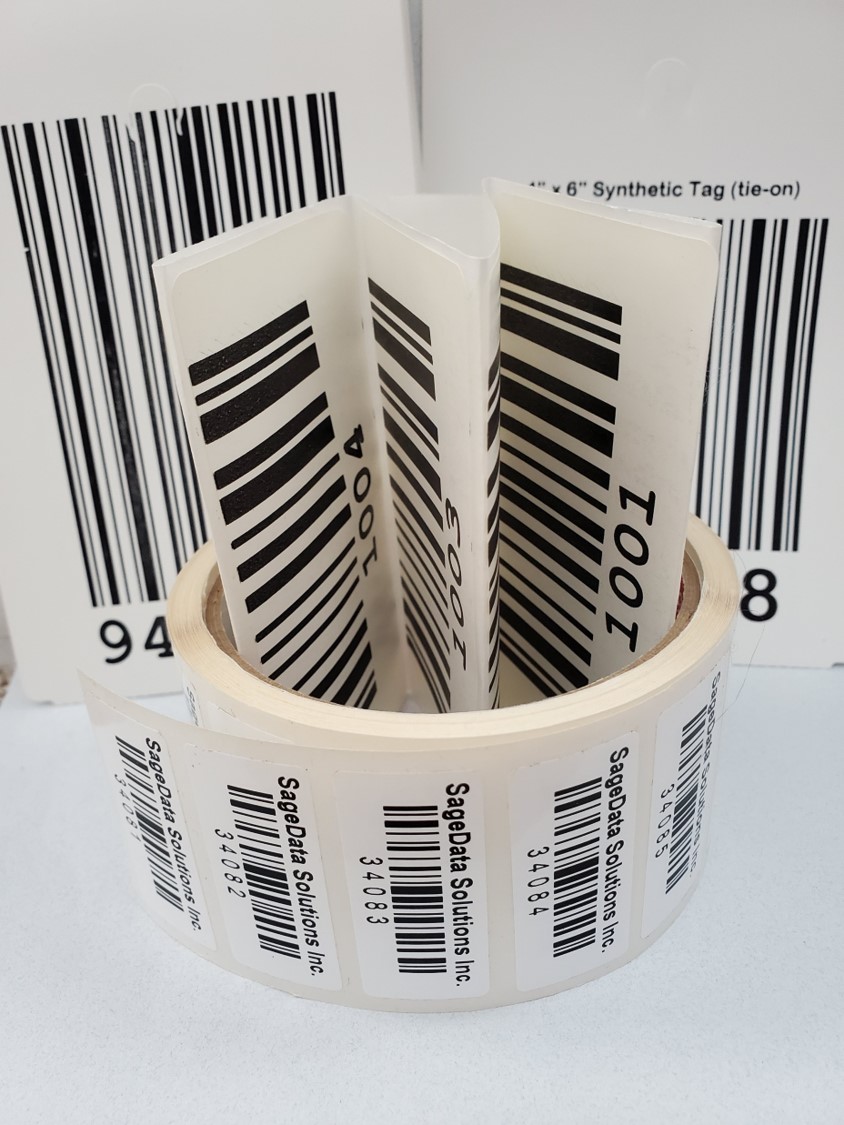How to verify the content of a
Barcoded Asset Identification Tag
SageData is based in Ottawa, Ontario, Canada
There are several elements to a system for managing fixed assets. They
include: the software for data collection, the software for the analysis and presentation
of the data collected, the reporting capability, and the mobile units used to read the ID
tags.
But one other element is central and perhaps most important. The asset identification tag
itself. If the data encoded into the tag is in error, then the whole system fails.
So it is vitally important to verify the content of the tag, whether that is barcoded or
RFID. And this goes beyond just reading the tag. The validation should include the link
to the raw data associated with the asset. Whether the asset is a firearm, a humble piece
of office furniture, or a piece of essential medical equipment, validation is necessary
to ensure the integrity of the system.

Warehouse Management, Inventory, Tool Crib, and Inspection Systems from SageData Solutions can help make completing routine tasks fast and easy. But before you can reap the rewards, someone has to make a small investment - by taking the time to apply Identification Tags to the items to be managed. And this is a key step. Any errors in the application of the tags will show up as errors in the future reports.
Depending on the size of the inventory, the application of tags can take some time, and of course it offers the opportunity for error. To help avoid errors, the validator enables process to be checked and correct labeling to be confirmed.
How does it work?
This is usually an application running on the MU (Mobile Unit). At any time, the tag can be read. Visual and audio feedback is provided to confirm pass or fail.
Information is passed back to the workstation, and information can be aggregated from several MU to show the overall compliance of all tags used in the system. The report will show a range of failures, and the number of tags failing each requirement.
What does the validator validate?
The validator is configured to the requirements of each system, but can
check the following…
- Confirms that the tag is legible, and that there is no interference from nearby
items
- The data encoded in the tags may include an “envelope”, a standard set of
characters surrounding the core data, and used to confirm compliance with an external
standard, such as that used by NATO. The validator confirms compliance with the envelope.
- The validator can check the core data, can confirm that it conforms to specified
format (length and character type)
- The validator may be able to decode the core data, and look up the linked
information from a related file or files. This acts as a secondary check on the integrity
of the data from the master file.
Reporting
The validator provides an immediate report on each individual tag as it is
scanned.
There is audio feedback to alert the user when a tag fails one of the tests.
Information is passed back and consolidated to give an overall picture of compliance
across all tags measured.
Conclusion
The validator is helpful by either providing an independent confirmation that all scanned tags are compliant with the specification, or by identifying tag errors so that they can be resolved before testing of the overall system begins…
Contact us for more information:
info@sage.ca
613-225-4404 or 1-888-838-1067
QAOK5355
